Do you know your WHY?
The purpose, cause, or belief that inspires you to do what you do?
Why are some people and organizations more innovative, more influential, and more profitable than others? Why do some command greater loyalty?
APPLE STARTS WITH “WHY”
It is the core of their marketing and the driving force behind their business operations. To help illustrate this point, imagine if Apple also started backwards by creating a marketing message that started with “what.”
“We make great computers. They’re user friendly, beautifully designed, and easy to use. Want to buy one?”
While these facts are true, I’m not sold. We instead want to know why they are great and user friendly. Turns out Apple has figured this out over the years and knows better. Here’s what a real marketing message from Apple might actually look like:
“With everything we do, we aim to challenge the status quo. We aim to think differently. Our products are user friendly, beautifully designed, and easy to use. We just happen to make great computers. Want to buy one?”
See how different that feels? Because Apple starts with “why” when defining their company, they are able to attract customers who share their fundamental beliefs.
Step Back and Use “Why” to Think About Your Own Business
Do you know your company’s “why”? (Hint: It’s not to make money). Think about the core purpose of your business, and then think about how you market your products or services. Are they aligned?
Having loyal customers is all about attracting the people who share your fundamental beliefs. Remember: People don’t buy what you do. They buy why you do it.
Yes, this might seem obvious, but it’s a critical step that is often overlooked. If you were (or are) the founder of your business, wouldn’t you want the people marketing it to know why you started it in the first place? Understanding “why” is essential to knowing how to communicate “how” and “what” you do.
MANAGEMENT VS. LEADERSHIP
There’s a difference between management and leadership.
- Management is about doing stuff – the day to day operations needed for the tactical things to get done.
- Leadership, on the other hand, is about people.
It’s less about what you’re doing and more about who you’re being. It’s how you show up for your people. It’s being available to handle the human side of things. When we are constantly worried about the tactical – what deadlines to hit, what metrics to reach, what projects to ship – we have less time to take care of the people who make all those tactical things happen.
Leaders are responsible for the people who are responsible for the results. And without the support of our people, it’s us who feel like we have to take more responsibility for the tactical because we know it’s our butts on the line.
What if we focused more of our energy on leading and building relationships with our people so that we could trust them and they’d trust us? Then we could empower them to take accountability for the tactical, which would open us up to do what we do best as leaders – look to and plan for the longer term future.
If you’re in a position of leadership in your organization, consider this question,
- “What percentage of my time do I spend managing vs. leading?”
If the leading percentage is smaller, imagine what would be possible if the numbers were reversed.
BECOMING A PERSON OF VALUE
“Thoughts lead on to purposes; purposes go forth in action; actions form habits; habits decide character; and character fixes our destiny.” (Tryon Edwards)
Almost everything you are or will be will be determined by your thoughts, feelings and behaviors.
- Fully 95% of everything you think, feel and do will be determined by your habits.
Fortunately, all habits are learned, and are therefore learnable. If you have bad habits, or if you have not yet developed the habits that you need to become everything that you are capable of becoming, you can develop these habits by a systematic process of practice and repetition, just as you learn any other subject.
- Good habits are hard to learn, but easy to live with.
- Bad habits, on the other hand, are easy to learn but hard to live with.
In either case, once you have developed a habit, it becomes automatic and easy. Like breathing in and breathing out, you find it easier and easier to engage in thoughts, feelings and behaviors that are consistent with the person you want to be, and the goals you want to achieve.
WHERE HABITS COME FROM
A habit has been defined as “a conditioned response to stimuli,” but where do they originate?
A habit is developed as the result of your responding in a particular way to a particular stimulus, often starting early in life. It is very much like driving down the road and taking a fork in one direction or another. Whichever direction you go, good or bad, largely determines where you end up.
Fortunately, you are born with no habits at all. You have acquired them all from infancy. Different habits take different time periods to develop, if you desire them, or to overcome, if they are habits that you want to get rid of. As it happens, there is a proven system that you can use to accelerate the process of new habit pattern development.
Behavioral psychologists refer to “operant conditioning” to describe how people learn certain automatic behaviors. They sometimes refer to the “SBC Model” of new habit pattern formation.
These three letters stand for
- Stimulus
- Behavior
- Consequences.
First, something happens in your life that stimulates a thought or feeling. Second, in response, you behave a particular way. Third, as a result, you experience a certain consequence. If you repeat this process often enough, you develop a new habit.
AS SIMPLE AS ABC
There is another model of habit pattern development called the “ABC Model.” These three letters stand for
- Antecedents
- Behaviors
- Consequences.
What psychologists have discovered is that the antecedents, what has happened in the past, stimulate only 15% of your behaviors. Fully 85% of your behaviors are motivated by what you expect to happen in the future, by the anticipated consequences.
For example, if you are preparing to give a presentation, or apply for a job, 85% of your motivation will be determined by what you expect to happen if you are successful. Only 15% of your motivation will be decided by what you have done in the past in similar circumstances.
EXPECTATIONS THEORY
There is a large block of work in psychology called “expectations theory.” The conclusions they have reached are that people are motivated to act in a particular way by what they expect to happen more than any other factor or influence.
In other words, you do the things you do because of the consequences you feel you will experience as a result. Expectations Theory explains small things, like what you do and say in a social situation, and large matters, such as capital movements in the international financial markets.
You can develop the habit of expecting good things to happen, no matter how they may appear at the moment. Your expectations then influence your attitudes and the way you treat other people. Your attitudes, expectations and behaviors will then have an inordinate influence on the way things actually work out. In effect, you can control much of your own future by expecting things to happen in a positive way.
Unfortunately, negative expectations also become self-fulfilling prophecies. If you expect something to turn out poorly, this will affect your attitude and behavior.
Your negative attitude then increases the likelihood that you will experience the negative consequences that you anticipated. If you repeat this often enough, you will develop a negative and pessimistic attitude. This way of thinking will become a habit.
NEW HABIT PATTERN DEVELOPMENT
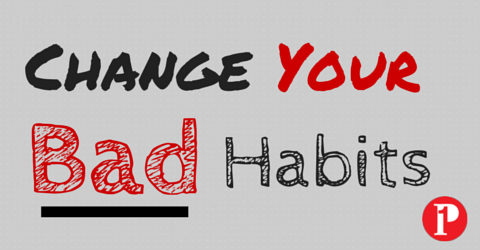
How long does it take to develop a new habit? The time period can be any length from a single second to several years. The speed of new habit pattern development is largely determined by the intensity of the emotion that accompanies the decision to begin acting in a particular way.
Many people think, talk about and resolve to lose weight and become physically fit. This may go on for years. Then one day, the doctor says that, “If you don’t get your weight down and improve your physical condition, you are in danger of dying at an early age.”
Suddenly, the thought of dying can be so intense or frightening that the individual immediately changes his diet, begins exercising, stops smoking and becomes a healthy and fit person. Psychologists refer to this as a “significant emotional experience,” or a “SEE.”
Any experience of intense joy or pain, combined with a behavior, can create a habitual behavior pattern that may endure for the rest of a person’s life.
According to the experts, it takes about 21 days to form a habit pattern of medium complexity.
By this, we mean simple habits such as getting up earlier at a specific hour, exercising each morning before you start out, listening to audio programs in your car, going to bed at a certain hour, being punctual for appointments, planning every day in advance, starting with your most important tasks each day, or completing your tasks before you start something else.
These are habits of medium complexity that can be quite easily developed in 14-21 days through practice and repetition.
How do you develop a new habit? Over the years, a simple, powerful, proven methodology has been determined for new habit development. It is very much like a recipe for preparing a dish in the kitchen. You can use it to develop any habit that you desire. Over time, you will find it easier and easier to develop the habits that you want to incorporate into your personality.
SEVEN STEPS TO A NEW HABIT
- Make a decision. Decide clearly that you are going to begin acting in a specific way 100% of the time, whenever that that behavior is required.
- Never allow an exception to your new habit pattern during the formative stages. Don’t make excuses or rationalizations. Don’t let yourself off the hook. If you resolve to get up at 6:00 am each morning, discipline yourself to get up at 6:00 AM, every single morning until this becomes automatic.
- Tell others that you are going to begin practicing a particular behavior. It is amazing how much more disciplined and determined you will become when you know that others are watching you to see if you have the willpower to follow through on your resolution.
- Visualize yourself performing or behaving in a particular way in a particular situation. The more often you visualize and imagine yourself acting as if you already had the new habit, the more rapidly this new behavior will be accepted by your subconscious mind and become automatic.
- Create an affirmation that you repeat over and over to yourself. This repetition dramatically increases the speed at which you develop the new habit. For example, you can say something like; “I get up and get going immediately at 6:00 AM each morning!” Repeat these words the last thing before you fall asleep.
- Resolve to persist in the new behavior until it is so automatic and easy that you actually feel uncomfortable when you do not do what you have decided to do.
- Give yourself a reward of some kind for practicing in the new behavior. Each time you reward yourself, you reaffirm and reinforce the behavior. Soon you begin to associate, at an unconscious level, the pleasure of the reward with the behavior.
I’ll say it again: People don’t buy what you do. They buy WHY you do it.
For some this will require a change of habits in your thinking and in your marketing.
Do you know your WHY?
JOIN US FOR OUR UPCOMING
FALL
SOCIAL MEDIA SEMINAR SERIES
- Facebook Ads – How to create, implement & boost sales – Sept. 10th AM
- Visual Content for Business – How to create & use visuals – Sept.10th PM
- Social Media Marketing for Realtors – Gain more listings & sales – Sept. 17th AM
- YouTube & Video – How to create, implement & boost sales – Oct. 29th PM
- Twitter for Business – The fastest way to spread your brand content – Oct. 29th AM
- Tools & Apps for Business – Gain more hrs. & be more productive – Nov. 5th AM
- Blogging – Generate leads & get new customers – Nov. 5th PM
About Blair

Blair Evan Ball is a Social Media Coach and founder of Prepare1, a company that works with businesses, individuals and non-profits. He is a former executive with a Fortune 50 company, and his national division did $1Billion+ in sales annually.
Blair has written three e-books: Facebook for Business Made Easy, Facebook Pages for Business Made Easy, and WordPress Blog Setup Made Easy.
Blair also educates, trains entrepreneurs and business professionals how to amplify their brand, increase revenues, and raise more funds.
![[Study] How Will Businesses Change Their Social Media Activities 5 Golden Rules for Sharing on Social Media](https://www.prepare1.com/wp-content/uploads/2014/03/COACH-logohat-162x300.jpg) The Race is ON! | PREPARE | Get into the Game and WIN!
The Race is ON! | PREPARE | Get into the Game and WIN!

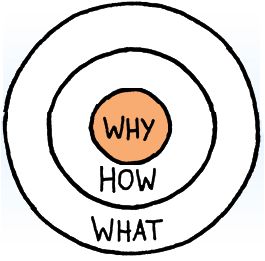



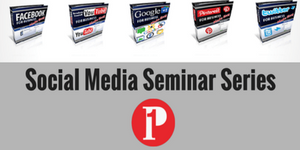



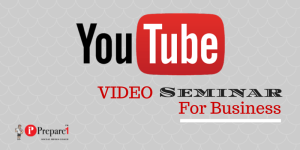
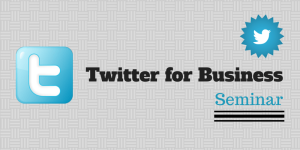

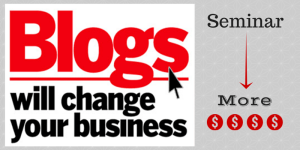


Comments on this entry are closed.
{ 1 trackback }